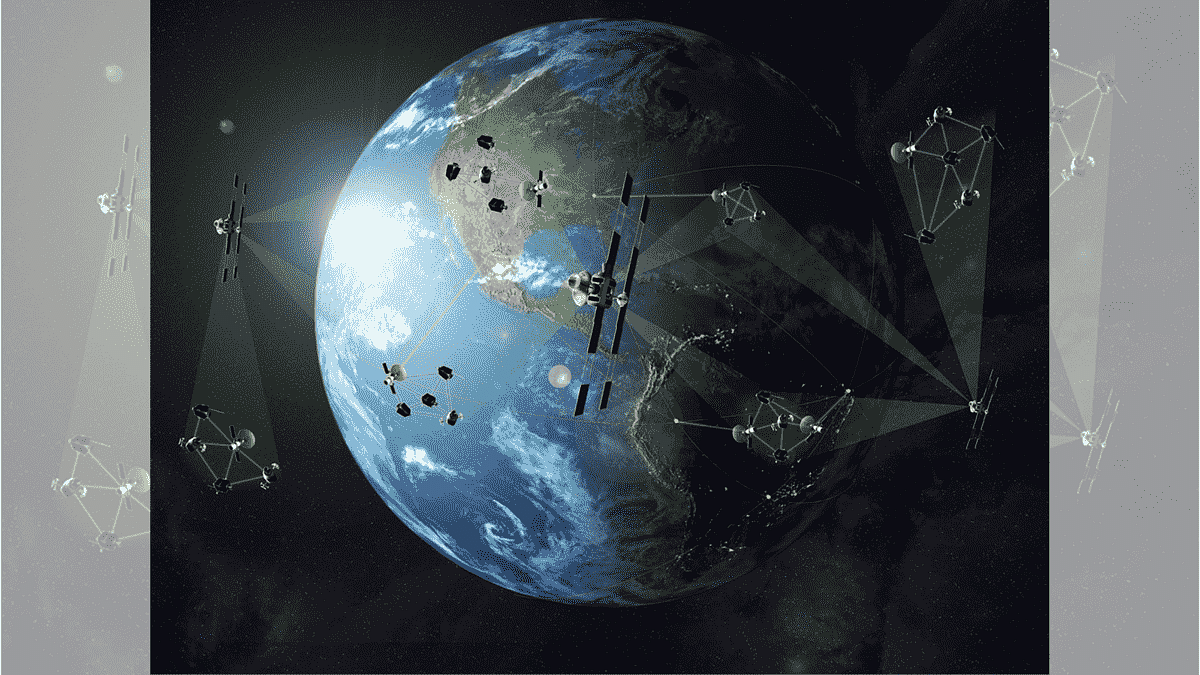While space exploration conjures up images of rockets blasting off to distant planets, the technologies at play often have far more mundane and very useful applications.
By 2035, these space technologies are expected to become as integral to daily life as semiconductors, according to a World Economic Forum report – Space: The $1.8 Trillion Opportunity for Global Economic Growth – developed in partnership with McKinsey & Company. The global space economy will grow to $1.8 trillion by 2035, from $630 billion in 2023, that report predicts, in an increasingly connected and mobile world.
How space technology impacts our daily lives
That chimes with the views expressed by Dr Alice Bunn, Chief Executive of the Institution of Mechanical Engineers and President of the UK Space Trade Association, in an interview with the Forum.
Space technology has a much more immediate and profound impact on our daily lives than many of us imagine, including weather forecasting, climate monitoring, navigation and telecommunications, says Bunn, who is also a member of the Forum’s Global Future Council on the Future of Space.
“There are so many space applications that really affect our everyday lives,” Bunn says. “It’s very, very powerful. And that is because of that unique vantage point where you get that opportunity to look down on Earth, that really iconic image of Earth from space.”
The vast majority of the data that goes into weather forecasting is from space, she says, as well as more than half of the data points that we monitor to understand climate change. Satellite navigation capabilities rely on data from space, as do telecommunications.
Space exploration transcends boundaries
Beyond the financial gains outlined in the Forum’s report, space technologies can also help to address global challenges, including disaster response and climate monitoring. The report underscores the importance of collaboration between public and private sectors to harness the full potential of the space economy.
While iconic pictures of the Earth viewed from space or of rockets blasting off, the reality of space travel is far from accessible for most people and remains largely a “billionaire’s dream,” Bunn says.
She suggests that space exploration should be viewed as an enabling sector that transcends the boundaries of traditional industries. While upfront investment costs and the challenges of handling vast amounts of space data remain, the potential rewards far outweigh these obstacles.
Collaboration, both informal and formal, across nations and industries will be essential, particularly for satellite missions and large-scale projects like lunar exploration. Looking ahead, Bunn is most excited by scientific discoveries from future space missions and the potential of space-based manufacturing to address critical shortages on Earth.
Space exploration needs to be anchored in scientific research since discoveries from space can have such significant impacts on life on Earth – like learning about the hole in the ozone layer.
Space technologies will increasingly permeate everyday life, the Forum’s report says, continuing to enable innovations like smart watches, advanced pharmaceuticals and extreme weather alerts.
Wide-ranging use cases of space technology
While consumers may remain largely in the dark on the role played by space technology, industry leaders recognize its impact.
Like the early internet, new space data and services will drive revenue and efficiency across industries, with both commercial and governmental investments. To sustain this growth, all stakeholders must collaborate on standardization, accessibility and education to expand space-enabled applications globally.
Underscoring the wide-ranging use cases, Bunn outlines an example from Viet Nam, where satellites predicted mosquito-borne disease outbreaks half a year before they occurred, allowing planning for healthcare responses.
“The value of this is they were able to get a six-month lead-in time on when you were going to get those disease outbreaks,” Bunn says. “They were able to put in place mobile health facilities to make sure they could manage the disease. These things can be happening all over the world, enabled by space.”
Bunn also highlights the importance of sustainability in space. Historically, countries have launched space missions with, in many cases, no plans or capability to return the apparatus to Earth, meaning space is increasingly cluttered with debris. “It’s like buying a brand new car with a full tank of petrol and when the petrol runs out you go, OK, that’s it, I can’t use that car anymore,” she says.
New developments in the space sector mean that, in the future, satellites will be able to be fixed while in space and refuelling will become a possibility, says Bunn. “This is a move to a much more sustainable way of taking advantage of our space environment.”
This article previously appeared in the World Economic Forum.

